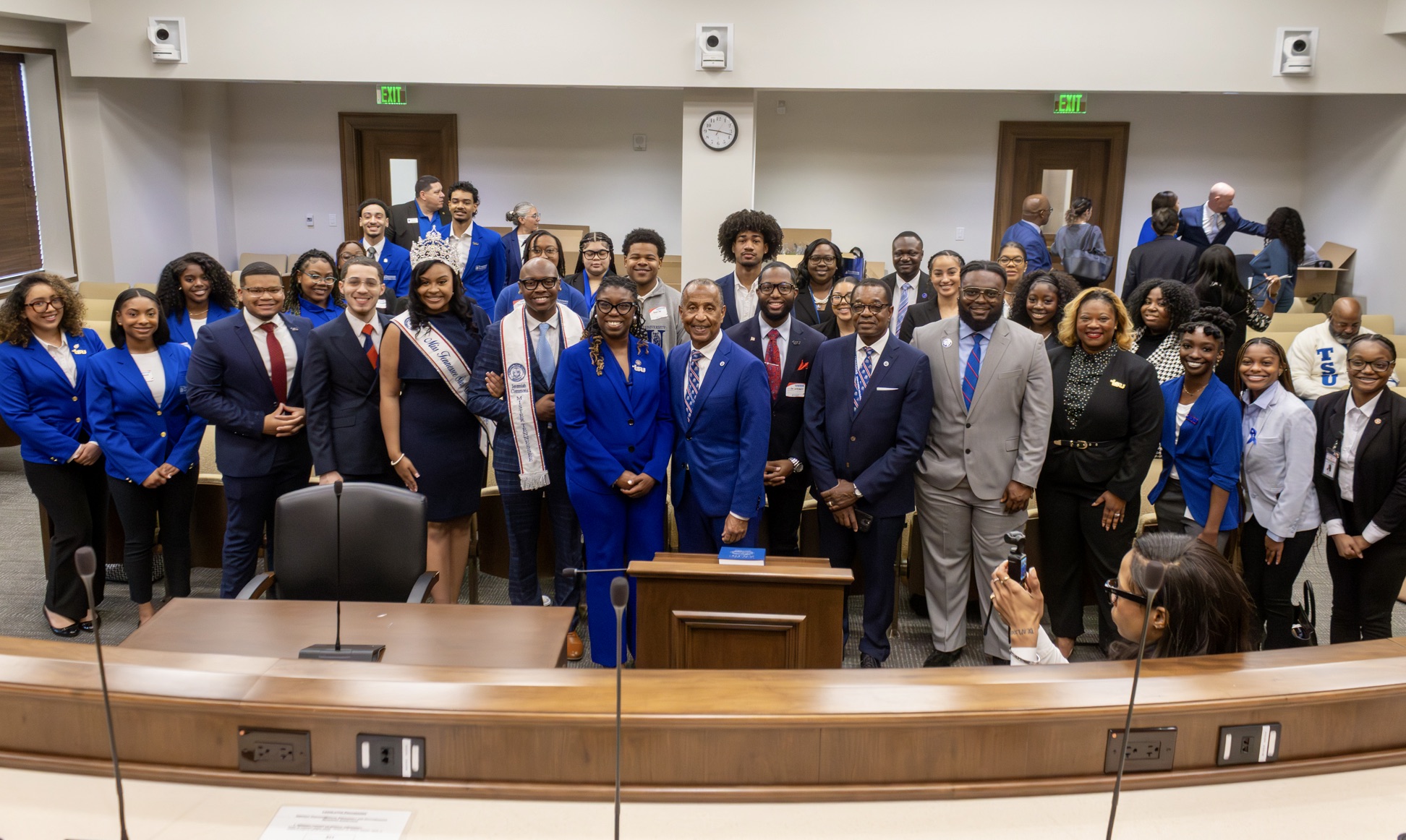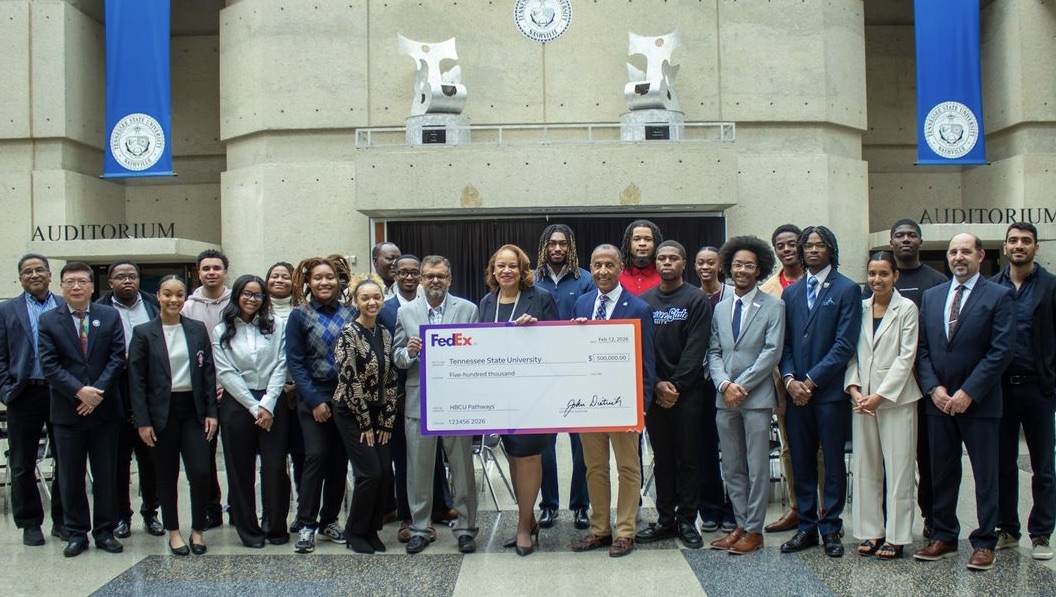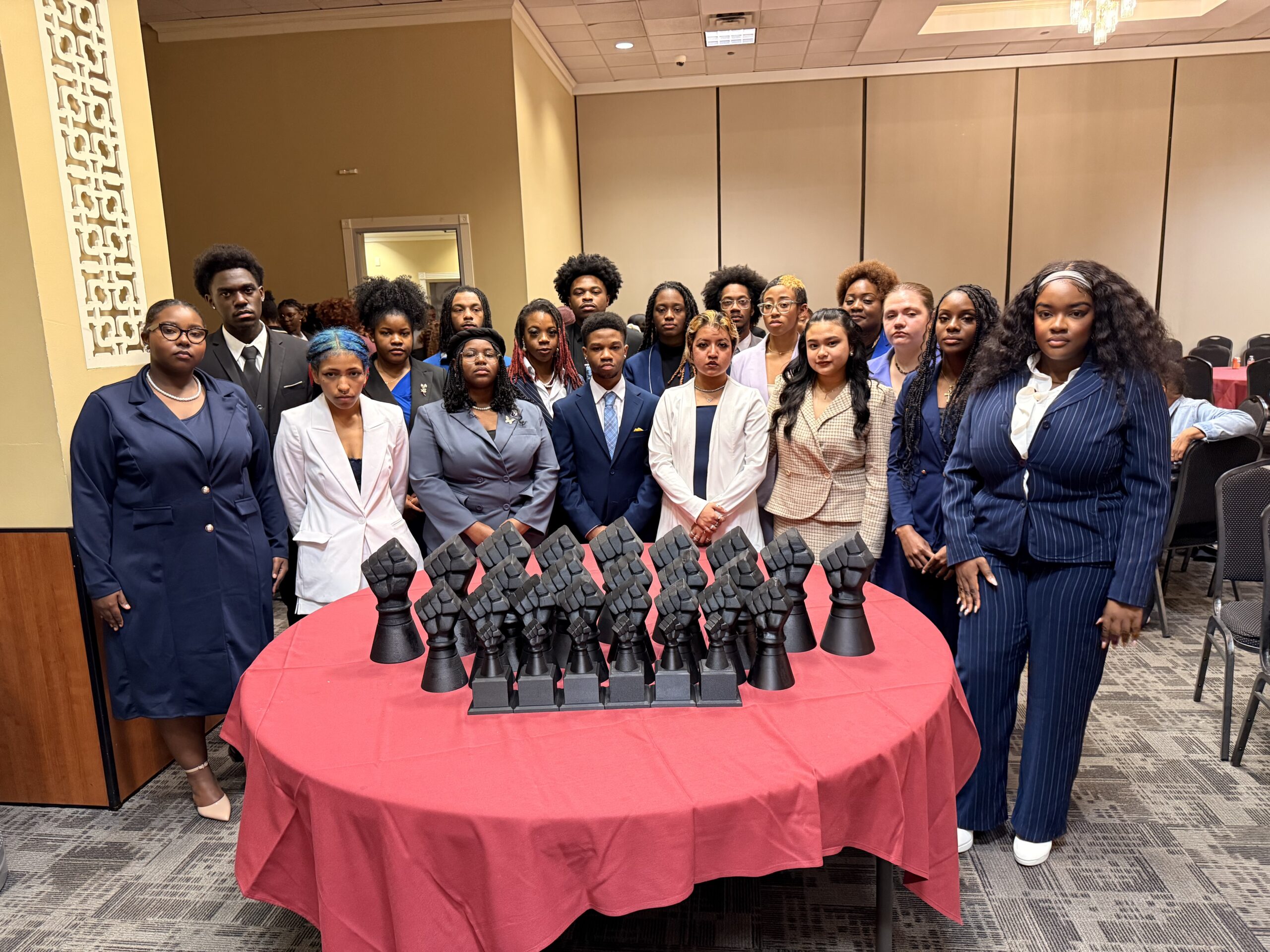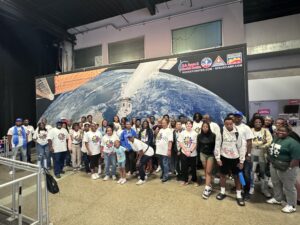
TSU math camp concludes with NASA visit
NASHVILLE, Tenn. (TSU News Service) – Middle Tennessee high school students took a step toward their future STEM careers, including the possibility of becoming astronauts, thanks

NASHVILLE, Tenn. (TSU News Service) – Middle Tennessee high school students took a step toward their future STEM careers, including the possibility of becoming astronauts, thanks

NASHVILLE, Tenn. (TSU News Service) – Tennessee State University will serve as the lead institution to promote STEM education and careers for Nashville’s HBCUs. TSU is
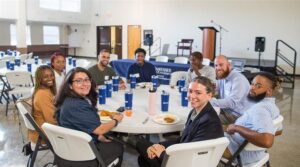
NASHVILLE, Tenn. (TSU News Service) – Turner Construction Company awarded three $15,000 scholarships for engineering students and will fund $65,000 to the department in Tuition Assistance Program grants to
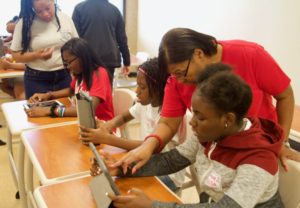
NASHVILLE, Tenn. (TSU News Service) – Tennessee State University is partnering with Apple, Inc. to teach middle and high school girls how to code, as

NASHVILLE, Tenn. (TSU News Service) – This holiday season, Erica Conn will get a gift from Tennessee State University she has longed to receive most of her
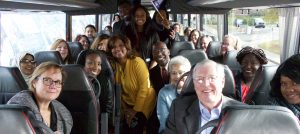
NASHVILLE, Tenn. (TSU News Service) – Nearly 50 Nashville business and community leaders visited Tennessee State University last week as part of the National Organization for
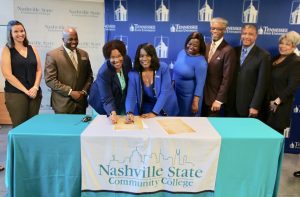
NASHVILLE, Tenn. (TSU News Service) – The presidents of Tennessee State University and Nashville State Community College have reaffirmed an agreement to help students get

NASHVILLE (TSU News Service) – Tennessee State University students and researchers will showcase their cutting-edge research projects and inventions at the 40th Annual University-Wide Research Symposium April
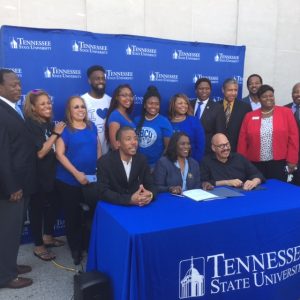
MEMPHIS, Tenn. (TSU News Service) – The State’s two largest school districts could see an increase in math, biology and chemistry teachers thanks to a

NASHVILLE, Tenn. (TSU News Service) —Increasing the number of minority students who earn a Ph.D. in science, technology, engineering and math is the aim of

